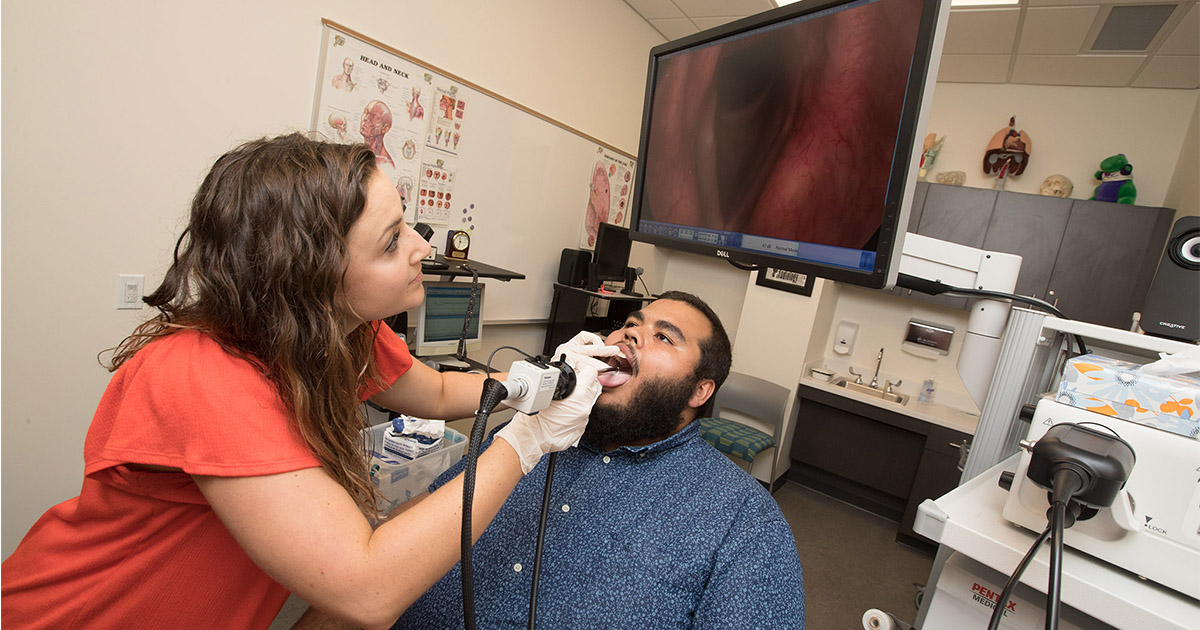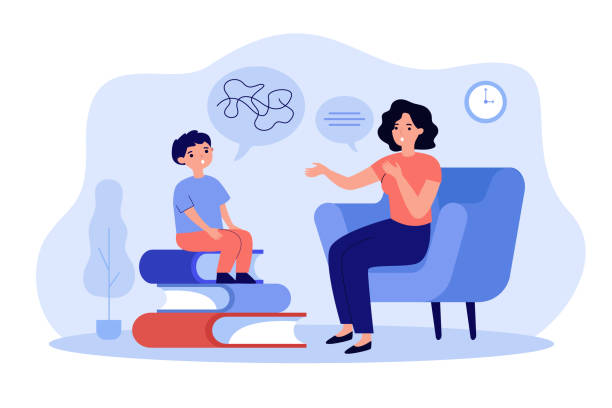Exactly How a Speech Pathologist Can Aid Improve Communication Abilities
Reliable interaction is a keystone of individual and specialist success, yet several individuals face obstacles that impede their ability to reveal themselves clearly. A speech pathologist is geared up to resolve these barriers through targeted evaluation and intervention strategies tailored to each individual's demands. By utilizing evidence-based healing techniques, they not only function to enhance speech and language problems but also enhance general communicative skills. Comprehending the multifaceted role of a speech pathologist reveals just how their expertise can change lives, inviting a better assessment of the certain techniques and end results related to their practice.
Recognizing Communication Problems
Recognizing communication problems is vital for identifying exactly how they affect people' ability to reveal themselves and engage with others. Interaction disorders incorporate a large range of problems that impact speech, language, and social communication, usually preventing effective communication. These problems can arise from different aspects, consisting of neurological problems, developing delays, physical impairments, or psychological problems.
Speech conditions might manifest as problems in articulation, voice, or fluency manufacturing, influencing how words are pronounced or spoken. Language conditions, on the various other hand, entail obstacles in understanding or using language, which can impede both verbal and non-verbal communication. Social communication conditions are defined by problems in the practical elements of interaction, such as taking kip down discussion or understanding social hints.
The effects of interaction problems are extensive, influencing not only the individual's capability to communicate thoughts and emotions but also their social relationships, educational possibilities, and total top quality of life. Recognition of these problems can cultivate compassion and support, encouraging effective strategies for interaction and involvement. Recognizing the intricacies of communication disorders is an important step towards advertising inclusivity and resolving the requirements of those impacted.
Function of a Speech Pathologist
Speech pathologists often play an essential function in dealing with and identifying communication disorders, using a variety of evidence-based methods tailored per individual's needs. These specialists deal with individuals throughout the life expectancy, from children with speech hold-ups to adults recouping from strokes or distressing brain injuries. Their proficiency incorporates a range of interaction problems, including expression, fluency, language, and voice problems.
In therapeutic setups, speech pathologists utilize organized interventions made to enhance interaction skills. They might implement methods such as speech exercises, language video games, and social interaction training to help with renovations in responsive and expressive language capacities. Speech Pathologist. Additionally, they inform customers and their families concerning effective communication strategies and adaptive techniques to browse day-to-day interactions
Beyond straight treatment, speech pathologists collaborate with other medical care teachers, specialists, and caregivers to ensure a detailed technique to therapy. They advocate for clients by offering resources and support, allowing people to attain their interaction objectives and improve their overall quality of life. As professionals in the field, speech pathologists are necessary in cultivating reliable interaction, advertising freedom, and improving social involvement for those with communication difficulties.
Evaluation and Diagnosis Process
The evaluation and diagnosis process conducted by speech pathologists generally involves an extensive assessment to recognize interaction problems precisely. This process begins with a comprehensive case history, where the medical professional collects significant details concerning the individual's medical, educational, and developing history. Comprehending the context of the individual's communication troubles is necessary for a precise diagnosis.
Following the instance history, speech pathologists utilize useful content casual evaluations and standardized examinations to review various aspects of interaction, including speech sound manufacturing, language comprehension, meaningful language, and social interaction skills. These analyses are customized to the individual's age and details issues, providing beneficial data for evaluation.
Monitoring is also an essential element of the assessment procedure, as it allows the clinician to see direct exactly how the specific interacts in all-natural settings. In addition, interviews with member of the family and instructors can provide understanding right into the individual's interaction challenges throughout various atmospheres.
As soon as the assessment is full, the speech pathologist synthesizes the findings to establish a diagnosis and suggest ideal interventions. This detailed assessment procedure makes certain that individuals get targeted assistance tailored to their distinct interaction demands, laying the foundation for efficient healing strategies.
Restorative Methods and Approaches
Numerous restorative strategies and approaches are employed by speech pathologists to deal with a range of interaction problems effectively. One commonly used technique is expression treatment, which concentrates on correcting speech sounds with repeating and aesthetic hints. This strategy is specifically beneficial for individuals with speech sound disorders.
One more efficient technique is language intervention, which improves both expressive and receptive language skills. This may involve interactive activities that promote vocabulary development, sentence structure understanding, and conversational abilities. In addition, speech pathologists often use social abilities educating to boost practical language capabilities, allowing individuals to navigate social interactions more efficiently.
Fluency shaping and stuttering alteration strategies are particularly designed to help those experiencing fluency conditions. These methods help customers create smoother speech patterns and take care of the emotional and physical components of stuttering.
Additionally, augmentative and different communication (AAC) systems are used for people with severe interaction problems. These systems, which can include gestures, icons, or electronic devices, give necessary support for reliable interaction.
Benefits of Speech Treatment

Additionally, speech treatment can help in establishing vital listening and understanding abilities, fostering far better communication in conversations. People with cognitive-communication conditions can also additional reading profit, as treatment concentrates on reinforcing memory and analytical abilities, essential for reliable communication.
An additional important element is the psychological support provided throughout therapy sessions. Speech pathologists develop a safe setting, encouraging people to get rid of anxiety and stress associated to their communication problems. This assistance can cause boosted self-confidence and total mental health.
Furthermore, very early intervention with speech treatment can avoid more problems, making certain that individuals reach their complete communicative possibility. In general, the advantages of speech therapy prolong past mere speech enhancement, favorably impacting different measurements of life for those influenced by communication problems.
Verdict
In summary, speech pathologists play an important duty in addressing communication conditions via assessment, diagnosis, and customized healing treatments. By employing evidence-based methods, these experts boost people' speech and language capabilities, fostering enhanced clearness, fluency, and social communication from this source abilities. The benefits of early intervention highlight the value of looking for aid from speech pathologists, as their knowledge can substantially boost communicative possibility, inevitably leading to greater success in both professional and personal spheres.

Speech pathologists frequently play a crucial duty in diagnosing and treating interaction problems, employing a range of evidence-based methods customized to each person's demands. As specialists in the field, speech pathologists are important in promoting efficient interaction, advertising freedom, and boosting social engagement for those with interaction challenges.
